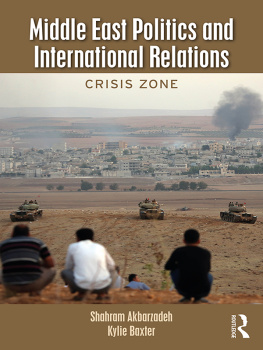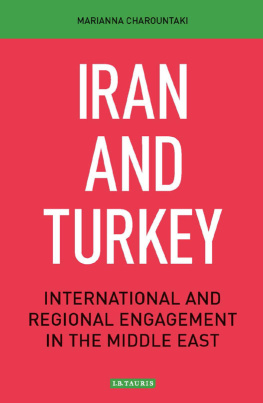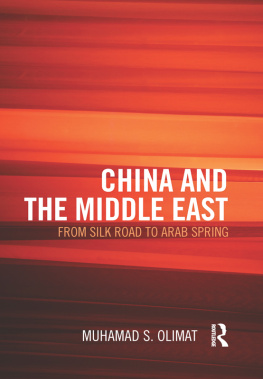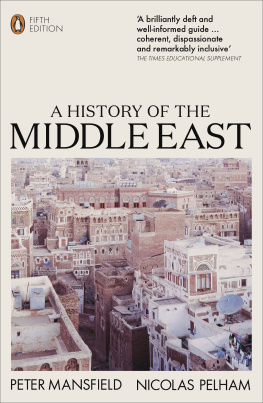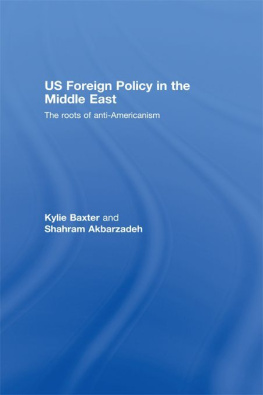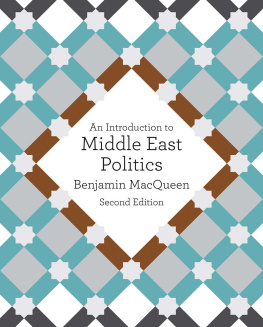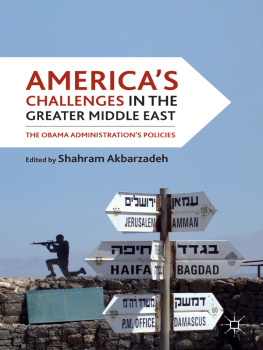Middle East Politics and International Relations
The contemporary Middle East has been defined by political crises and conflict. The interplay of internal and external factors have set the region on a path of turmoil and crisis with devastating outcomes for its people. The absence of political accountability and representation, and policies pursued by the United States to keep US-friendly regimes in power have been two key factors that have contributed to the seemingly insoluble Middle East politics.
This book provides a detailed exploration of the forces, internal and external, that have shaped todays Middle East. The book follows a chronological order and provides context to major political milestones. Topics explored include:
Imperialism in the Middle East
The formation of the State of Israel
The Arab -Israeli wars
Palestinian politics and the failure of the peace process
The Iranian Revolution and pan-Shiism
Superpowers in the Middle East
The US-led War on Terror
The Arab uprisings
The Syrian War and the rise of the Islamic State
US -Iranian relations
This study puts recent developments in historical context, and will serve as a core reference tool for students and researchers of Middle Eastern Politics and International Relations.
Shahram Akbarzadeh is Research Professor of Middle East and Central Asian Politics and held the prestigious ARC Future Fellowship (20132016). He is Deputy Director (International) at the Alfred Deakin Institute for Citizenship and Globalization, Deakin University, Australia.
Kylie Baxter is a Lecturer in Islamic Studies at Asia Institute, University of Melbourne, Australia.
Middle East Politics and International Relations
Crisis Zone
Shahram Akbarzadeh and Kylie Baxter

First published 2018
by Routledge
2 Park Square, Milton Park, Abingdon, Oxon OX14 4RN
and by Routledge
711 Third Avenue, New York, NY 10017
Routledge is an imprint of the Taylor & Francis Group, an informa business
2018 2018 Shahram Akbarzadeh and Kylie Baxter
The right of Shahram Akbarzadeh and Kylie Baxter to be identified as authors of this work has been asserted by them in accordance with sections 77 and 78 of the Copyright, Designs and Patents Act 1988.
All rights reserved. No part of this book may be reprinted or reproduced or utilised in any form or by any electronic, mechanical, or other means, now known or hereafter invented, including photocopying and recording, or in any information storage or retrieval system, without permission in writing from the publishers.
Trademark notice: Product or corporate names may be trademarks or registered trademarks, and are used only for identification and explanation without intent to infringe.
British Library Cataloguing-in-Publication Data
A catalogue record for this book is available from the British Library
Library of Congress Cataloging-in-Publication Data
Names: Akbarzadeh, Shahram, author. | Baxter, Kylie, author.
Title: Middle East politics and international relations : crisis zone / Shahram Akbarzadeh and Kylie Baxter.
Description: Milton Park, Abingdon, Oxon ; New York, NY : Routledge, 2018. | Includes bibliographical references and index.
Identifiers: LCCN 2017060139| ISBN 9781138056268 (hbk) | ISBN 9781138056275 (pbk) | ISBN 9781315165455 (ebk)
Subjects: LCSH: Middle East--Politics and government--20th century. | Middle East--Politics and government--21st century. | Middle East--Foreign relations--20th century. | Middle East--Foreign relations--21st century.
Classification: LCC DS62.8 .A39 2018 | DDC 327.56--dc23
LC record available at https://lccn.loc.gov/2017060139
ISBN: 978-1-138-05626-8 (hbk)
ISBN: 978-1-138-05627-5 (pbk)
ISBN: 978-1-315-16545-5 (ebk)
The authors would like to acknowledge the support of the Alfred Deakin Institute for Citizenship and Globalization, Deakin University, and the Asia Institute, University of Melbourne. We would also like to acknowledge the many graduate and undergraduate students we have taught over the years. This book reflects their interest and enthusiasm for the politics, religions and cultures of the Middle East. Finally, thanks also to Ms Renee Davidson, whose hard work and dedication immeasurably enhanced this volume.

The Middle East has been defined by political crises for the last 100 years. In the political halls of power, the media, popular culture and the educational institutions of Western countries, the term Middle East conjures a confused imagery of religion, resources, foreign interference and politics that can be hard to untangle. In the twentieth century, the establishment of nation-states and the framework of the Cold War moderated not just the political environment of the region, but the lens through which outsiders came to understand events. For much of the century, authoritarian stability was the dominant form of politics in the Middle East. As the Cold War receded, a new, chaotic sense of globalization penetrated the region and this system of political organization began to falter.
Despite these changes, few observers foresaw the magnitude of the shifts underway in this region. For generations, the gap between the political elites and the people they ruled had grown not just in terms of economic opportunity, but in terms of political and social capital. This led to a build-up of resentment and discontent that had no legal avenue of expression. The pent-up energy erupted into mass protests in some cases (the 1979 revolution in Iran, the 2011 Arab uprisings). In other cases, deep social and political tensions turned into violent inter-community conflict. Recent events in the Middle East have thrown into sharp relief the legitimacy of the political elites and the system that sustains their power: the system of nation-states. In the Middle East, the nation-state has lacked institutional capacity and popular legitimacy. The political entities that emerged out of the colonial experience were unrepresentative of the masses they governed. Lack of transparency and accountability, mixed with the inability to provide or foster social and economic mobility, on the one hand, and authoritarian practices which were aimed at silencing dissent, on the other, made states in the Middle East vulnerable to combustible resentment. Anti-systemic energy kept building up in a pressure-cooker environment, ready to erupt.
Social and political tensions in the Middle East were exacerbated by the continuing involvement of colonial and post-colonial superpowers in the region. In the following pages, an overview of the colonial impact will be provided. But what will become clear in the course of this book is that the Cold War rivalry between the Soviet Union and the United States made a devastating impression on the region and deepened the divide between society and the political elite. Each superpower sought to strengthen its links with ruling regimes that aligned with its global interests. This experience stood out markedly in relation to the United States as Washington turned a blind eye to the authoritarian nature of the ruling regimes in Iran, Egypt and Saudi Arabia in the latter half of the twentieth century. Washington helped prop up these regimes to counter Moscows influence at the expense of popular wishes. The consequence was US-sponsored regimes that were not responsive to their own populations. This political divide ran through the region and set the Middle East on course for seismic shocks, long after the end of the Cold War. As will be explored in detail, the underlying reasons for the Arab uprisings of 2011 may be traced to the political system that emerged in the Cold War era.

